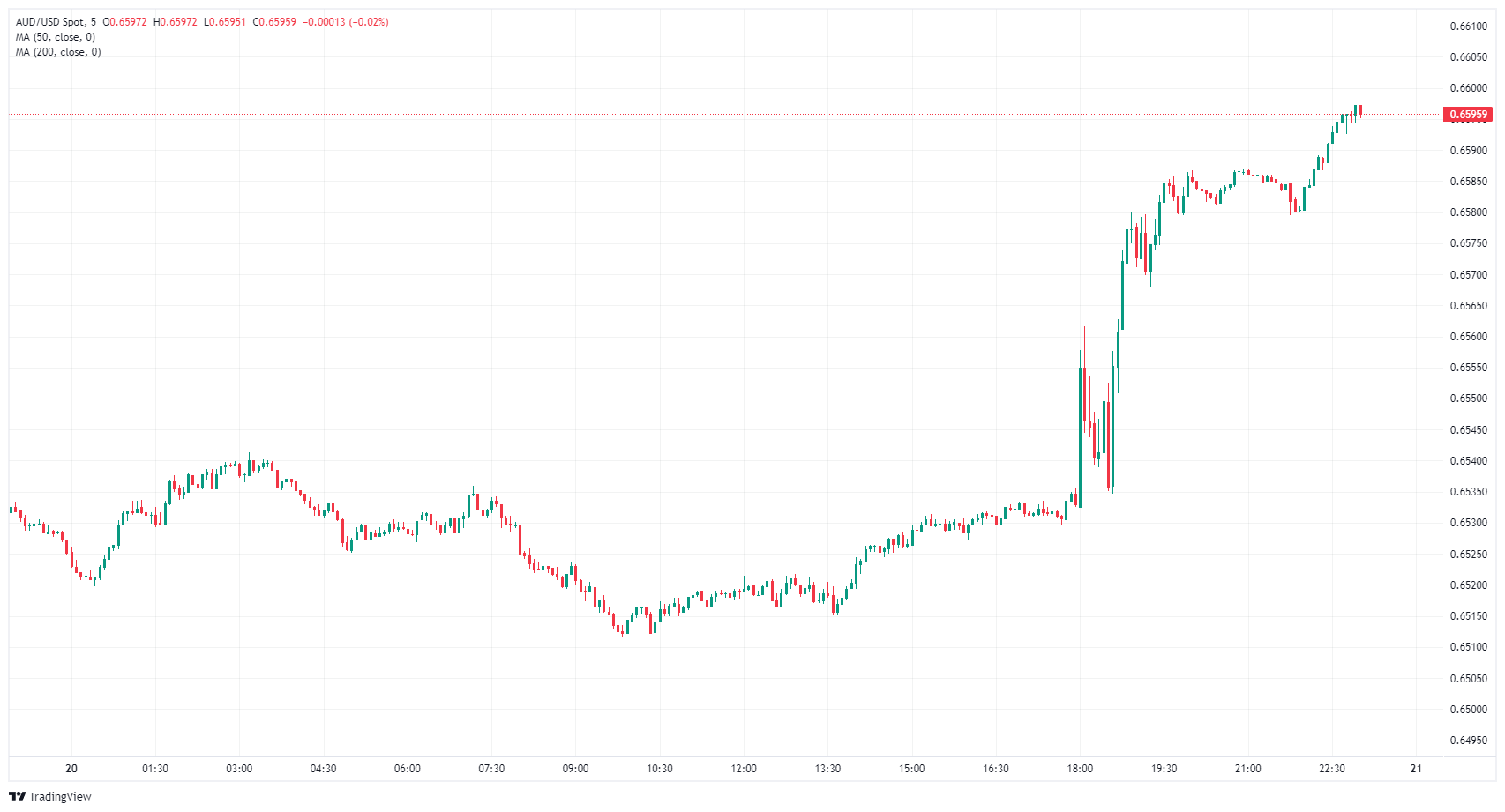- Phân tích
- Tin tức và các công cụ
- Tin tức thị trường
- Australia's Judo Bank PMIs come in mixed as Services PMI rises, Manufacturing PMI eases
Australia's Judo Bank PMIs come in mixed as Services PMI rises, Manufacturing PMI eases
Australia's Judo Bank Purchasing Managers Index (PMI) came in mixed in the early Thursday market session, with a lift in the Services component mixing with an easing in the Manufacturing PMI.
Judo Bank's March Manufacturing PMI ticked down to 46.8 after the previous month's 47.8, while the Services component rose to 53.5 from the previous 53.1. The Composite March Judo Bank PMI rose to 52.4 from 52.1.
According to Warren Hogan, Chief Economic Advisor at Judo Bank: "Over the survey's nine-year history, this is the largest four-month increase in the Composite Output index outside of the two recovery periods when the economy was locked down during the pandemic."
Warren added, "The underlying details of the survey highlight that the improvement in business performance in 2024 is not even across the economy. Manufacturing activity remains soft in early 2024, with the Australian Manufacturing PMI down to a new cyclical low point well below 50.0".
Warren also noted that underlying details about Australia's manufacturing sector may be irrelevant to the country's overall economic outlook, as manufacturing accounts for less than 10% of Australia's economy.
Market reaction
AUD/USD stepped into a fresh near-term high as markets head into the Thursday market session, with the pair approaching 0.6600 following a Fed-fueled rally from Wednesday's early lows near 0.6510.
AUD/USD 5-minute chart
About Australia's Judo Bank Composite PMI
The Composite Purchasing Managers Index (PMI), released on a monthly basis by Judo Bank and S&P Global, is a leading indicator gauging private-business activity in Australia for both the manufacturing and services sectors. The data is derived from surveys to senior executives. Each response is weighted according to the size of the company and its contribution to total manufacturing or services output accounted for by the sub-sector to which that company belongs. Survey responses reflect the change, if any, in the current month compared to the previous month and can anticipate changing trends in official data series such as Gross Domestic Product (GDP), industrial production, employment and inflation. The index varies between 0 and 100, with levels of 50.0 signaling no change over the previous month. A reading above 50 indicates that the Australian private economy is generally expanding, a bullish sign for the Australian Dollar (AUD). Meanwhile, a reading below 50 signals that activity is generally declining, which is seen as bearish for AUD.
© 2000-2026. Bản quyền Teletrade.
Trang web này được quản lý bởi Teletrade D.J. LLC 2351 LLC 2022 (Euro House, Richmond Hill Road, Kingstown, VC0100, St. Vincent and the Grenadines).
Thông tin trên trang web không phải là cơ sở để đưa ra quyết định đầu tư và chỉ được cung cấp cho mục đích làm quen.
Giao dịch trên thị trường tài chính (đặc biệt là giao dịch sử dụng các công cụ biên) mở ra những cơ hội lớn và tạo điều kiện cho các nhà đầu tư sẵn sàng mạo hiểm để thu lợi nhuận, tuy nhiên nó mang trong mình nguy cơ rủi ro khá cao. Chính vì vậy trước khi tiến hành giao dịch cần phải xem xét mọi mặt vấn đề chấp nhận tiến hành giao dịch cụ thể xét theo quan điểm của nguồn lực tài chính sẵn có và mức độ am hiểu thị trường tài chính.
Sử dụng thông tin: sử dụng toàn bộ hay riêng biệt các dữ liệu trên trang web của công ty TeleTrade như một nguồn cung cấp thông tin nhất định. Việc sử dụng tư liệu từ trang web cần kèm theo liên kết đến trang teletrade.vn. Việc tự động thu thập số liệu cũng như thông tin từ trang web TeleTrade đều không được phép.
Xin vui lòng liên hệ với pr@teletrade.global nếu có câu hỏi.















